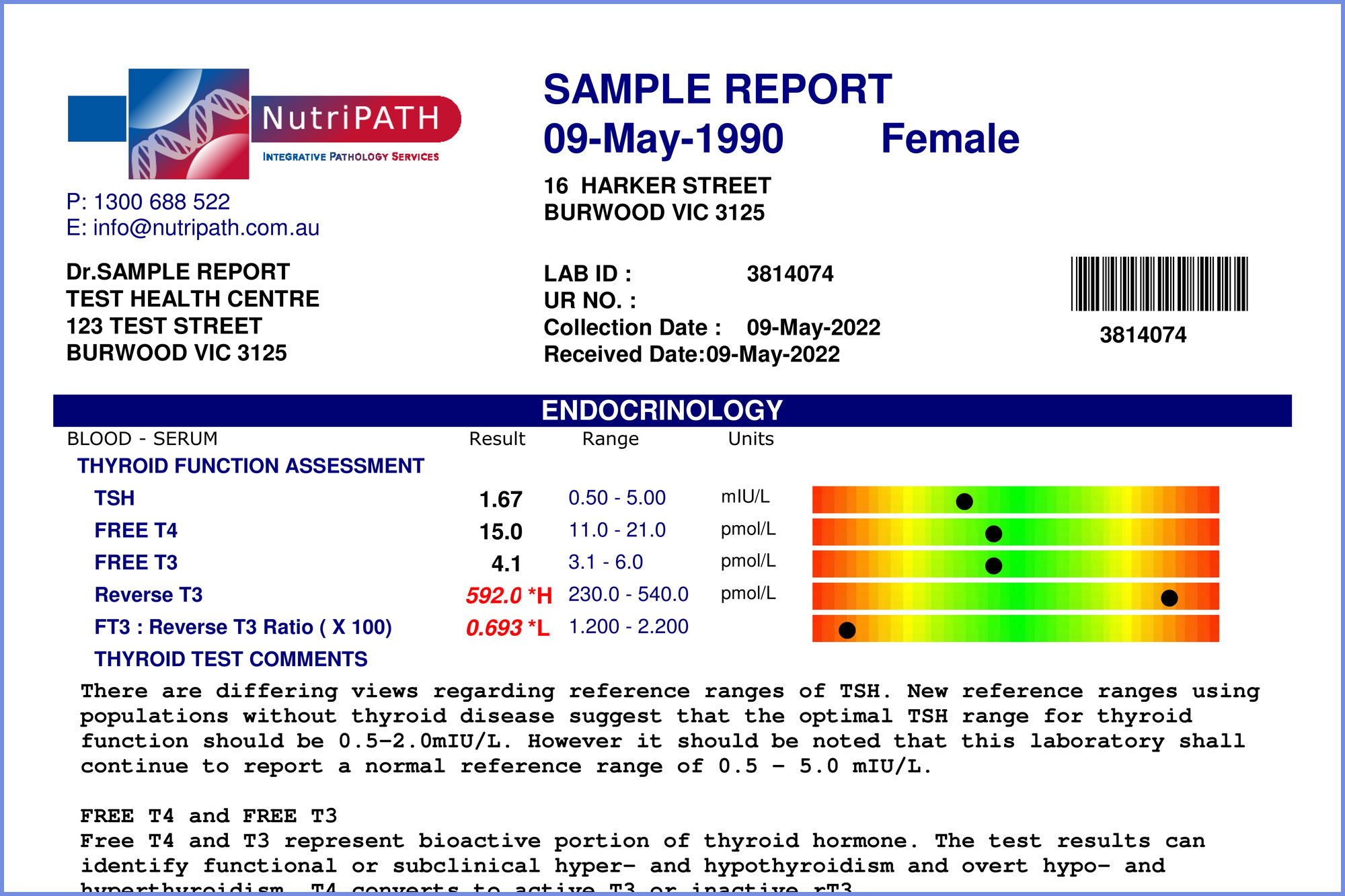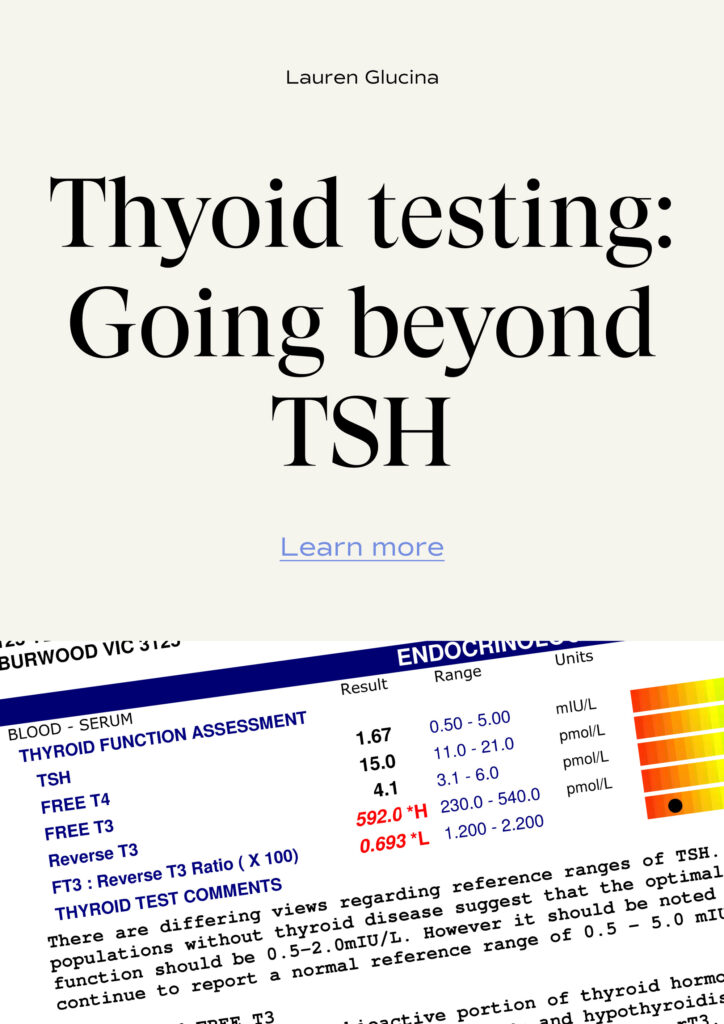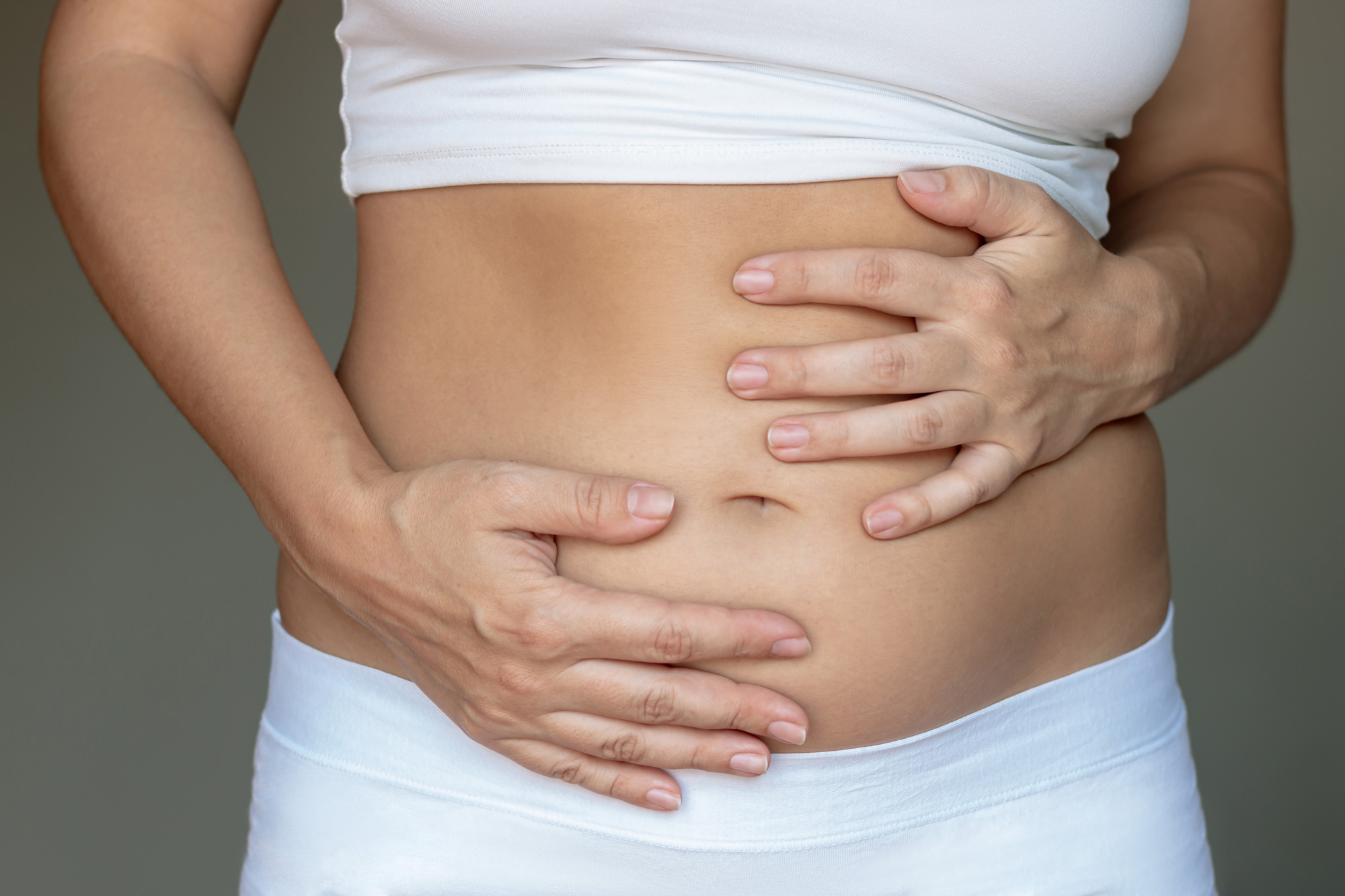If you’ve been experiencing a raft of symptoms that may indicate your thyroid gland is struggling, a comprehensive thyroid assessment will help you determine whether or not this is the case.
So what exactly does that entail? Let’s find out…

🧠 Thyroid Stimulating Hormone (TSH)
TSH is a hormone produced by the pituitary gland in the brain, that signals the thyroid gland to produce thyroid hormone.
When low circulating levels of thyroid hormone are detected, TSH secretion increases, stimulating the thyroid gland to upregulate its production. Once blood levels return to normal, thyroid hormone exerts negative feedback which in turn suppresses TSH.
An excess of TSH can indicate the thyroid gland is hypoactive, whereas low levels may indicate hyperactivity.
However, this is not always the case – as TSH can look to be range, despite thyroid hormones being suboptimal.
Because TSH is often solely relied upon by conventional medicine as a first-stage test, many thyroid conditions are missed. This can be super frustrating for those who are symptomatic yet told their thyroid pathology is ‘normal’.
If this is the only test you’ve had done, you have to remember its limitations – it is a pituitary hormone, not a thyroid hormone, and so is only offering a single piece of a complex puzzle, far from the whole picture.
For further insight, you need to measure thyroid hormones themselves.
🦋 Thyroxine (T4) and triiodothyronine (T3)
Thyroxine (T4) and triiodothyronine (T3) are the primary hormones produced by the thyroid gland, serving as indicators of its function.
Thyroxine, or free T4, is a precursor storage hormone synthesized by the thyroid gland in response to thyroid-stimulating hormone (TSH). Its production requires adequate amounts of tyrosine and iodine. While T4 itself is inactive, it must be converted into the active form, T3, in various tissues throughout the body to be utilized by cells.
Triiodothyronine (T3), or free T3, is the metabolically active hormone. It is primarily produced through the conversion of T4 in different tissues, a process that requires adequate selenium, zinc, and iron. A smaller amount of T3 is directly synthesized by the thyroid gland.
Suboptimal or overtly low levels of these hormones can indicate hypothyroidism or Hashimoto’s thyroiditis, whilst elevated levels may indicate hyperthyroidism or Graves’ disease.
Circling back to TSH, another drawback of relying solely on this measure for screening is that it fails to detect any underlying autoimmunity.
In autoimmune conditions, the body loses the ability to distinguish between its own cells and foreign invaders. When this occurs, antibodies are produced that target specific parts of the body. In autoimmune thyroid disease, these antibodies attack the thyroid gland.
🧪 Thyroid antibodies
The three key thyroid antibodies include –
- Anti-thyroid peroxidase (TPOAb)
- Anti-thyroglobulin antibody (TgAb)
- TSH receptor antibodies (TrAb), which are also known as thyroid-stimulating immunoglobulin (TSI)
Thyroid antibodies may indicate subclinical hypothyroidism, autoimmune thyroid disease (Hashimoto’s thyroiditis, Graves’ disease), thyroid nodules, postpartum thyroiditis, and thyroid carcinoma. In all cases, the presence of antibodies suggest there is some degree of inflammation and damage being done to the gland.

Finally, in addition to the markers mentioned, a comprehensive thyroid workup should also include reverse T3 (rT3).
⚡ Reverse T3 (rT3)
Think of rT3 as the brake for your metabolism, while T3 serves as the accelerator. Some thyroxine (T4) is converted into rT3 to regulate and prevent an excess of the metabolically active T3. In certain situations, such as starvation, chronic illness (with chronic fatigue syndrome being a notable example) and chronic stress, more T4 is converted to rT3 than usual.
This increased rT3 binds to thyroid receptors, deactivating them and slowing down the metabolic rate. This response is a normal energy-conservation mechanism during illness and typically returns to normal as recovery progresses.
🗒️ Summary
To summarise, a comprehensive thyroid assessment should include the following:
- TSH
- T4
- T3
- rT3
- Thyroid antibodies (TPOAb, TgAb, TrAb/TSI)
The ideal testing conditions are fasted, rested, hydrated and first thing in the morning. Importantly, the reference intervals for thyroid antibodies differ between labs, so to compare apples with apples, you should always return to the same lab for consecutive tests.
Undergoing a full thyroid assessment will give you a much better understanding of how your thyroid is functioning, so you can best determine treatment.
I hope that helps, if you would like assistance ordering thyroid labs or need holistic support for a thyroid condition, please feel free to book a consult with me here.
Till next time,
Lauren.






Comments +